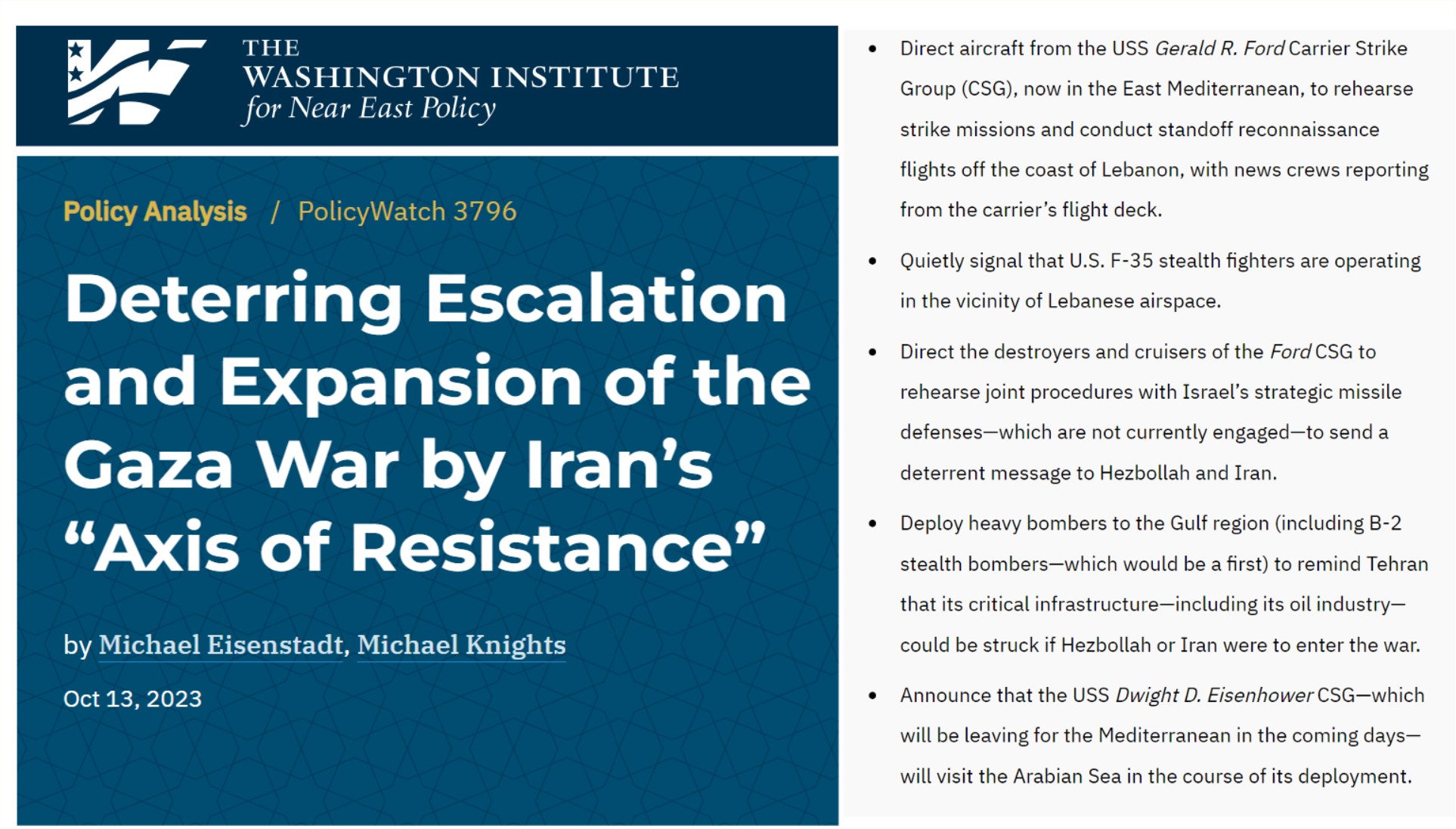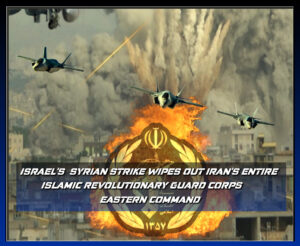 Washington should proactively try to shape the calculus of these actors by making clear, through words and deeds, that their participation in the conflict would elicit a strong U.S. response. The Biden administration has made a good start in this regard, signaling from the first day of the crisis that the dispatch of U.S. military assets toward the East Mediterranean was intended “to respond to any contingencies and minimize the risk of a wider spread conflict,” adding that the United States would be “deeply concerned about Hezbollah making the wrong decision and choosing to open a second front…” President Biden pointedly advised any states thinking of broadening the war: “Don’t.”
Washington should proactively try to shape the calculus of these actors by making clear, through words and deeds, that their participation in the conflict would elicit a strong U.S. response. The Biden administration has made a good start in this regard, signaling from the first day of the crisis that the dispatch of U.S. military assets toward the East Mediterranean was intended “to respond to any contingencies and minimize the risk of a wider spread conflict,” adding that the United States would be “deeply concerned about Hezbollah making the wrong decision and choosing to open a second front…” President Biden pointedly advised any states thinking of broadening the war: “Don’t.”
U.S. support to Israel will need to be constantly adjusted. To this end, the United States should:
- Direct aircraft from the USS Gerald R. Ford Carrier Strike Group (CSG), now in the East Mediterranean, to rehearse strike missions and conduct standoff reconnaissance flights off the coast of Lebanon, with news crews reporting from the carrier’s flight deck.
- Quietly signal that U.S. F-35 stealth fighters are operating in the vicinity of Lebanese airspace.
- Direct the destroyers and cruisers of the Ford CSG to rehearse joint procedures with Israel’s strategic missile defenses—which are not currently engaged—to send a deterrent message to Hezbollah and Iran.
- Deploy heavy bombers to the Gulf region (including B-2 stealth bombers—which would be a first) to remind Tehran that its critical infrastructure—including its oil industry—could be struck if Hezbollah or Iran were to enter the war.
- Announce that the USS Dwight D. Eisenhower CSG—which will be leaving for the Mediterranean in the coming days—will visit the Arabian Sea in the course of its deployment.




